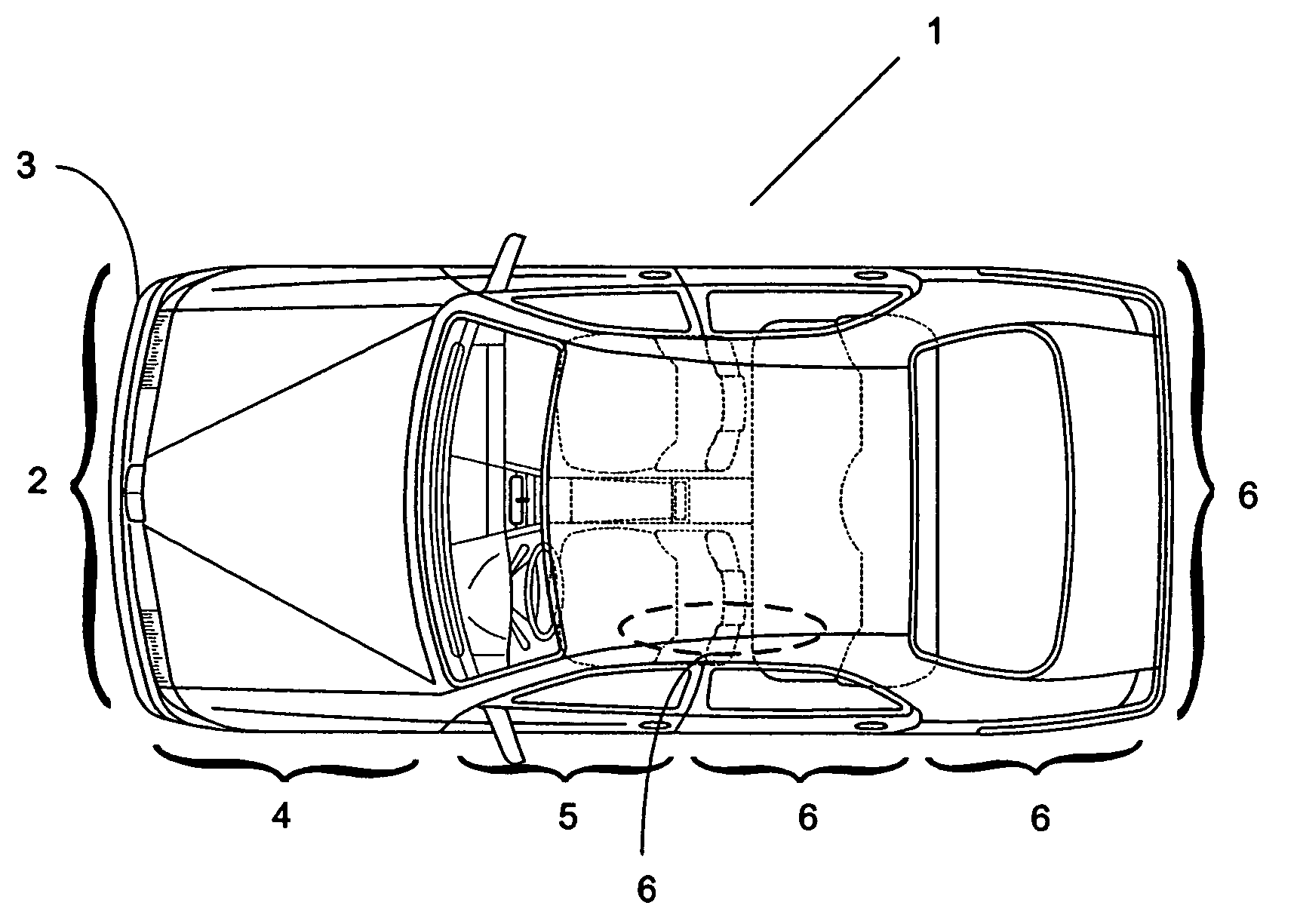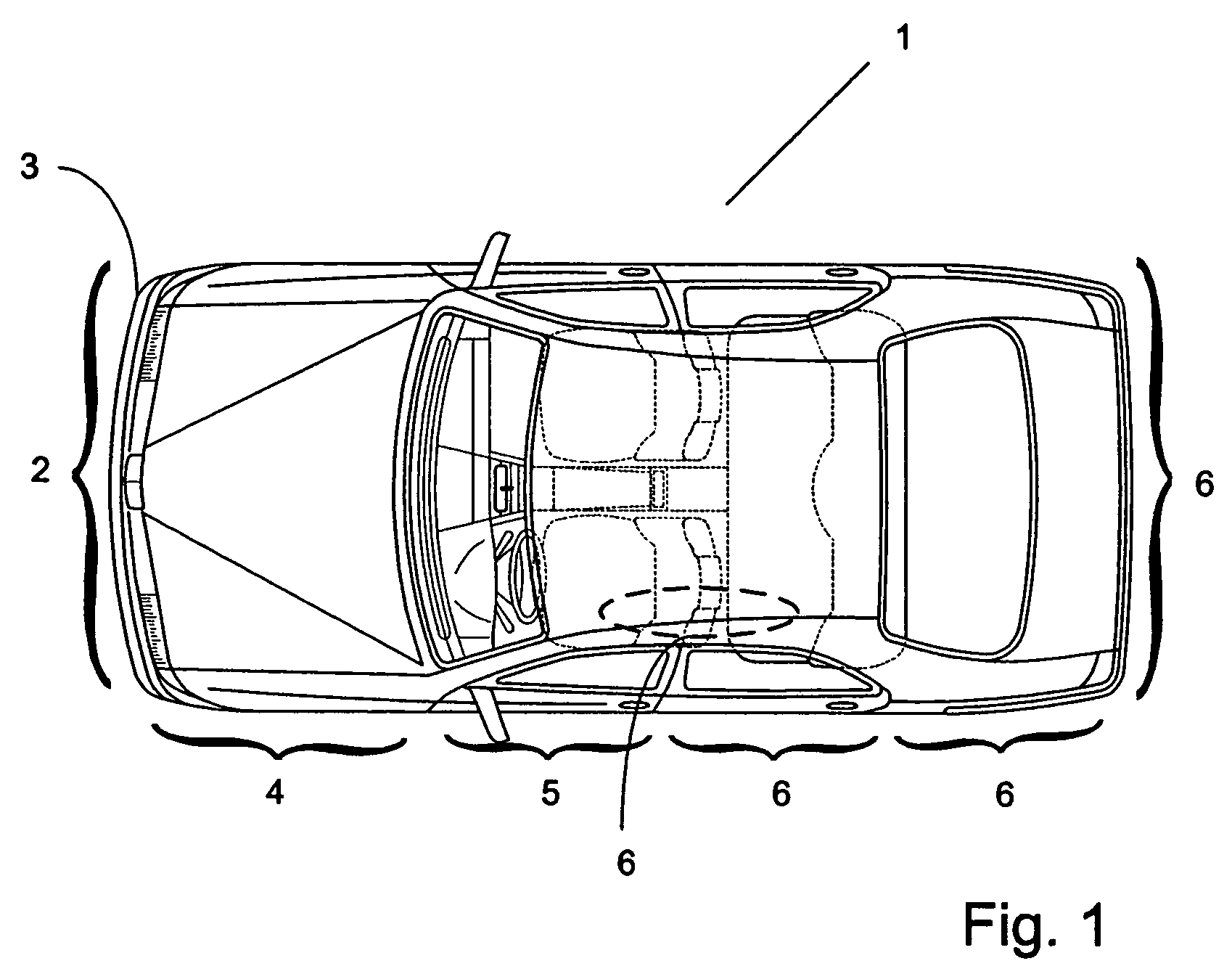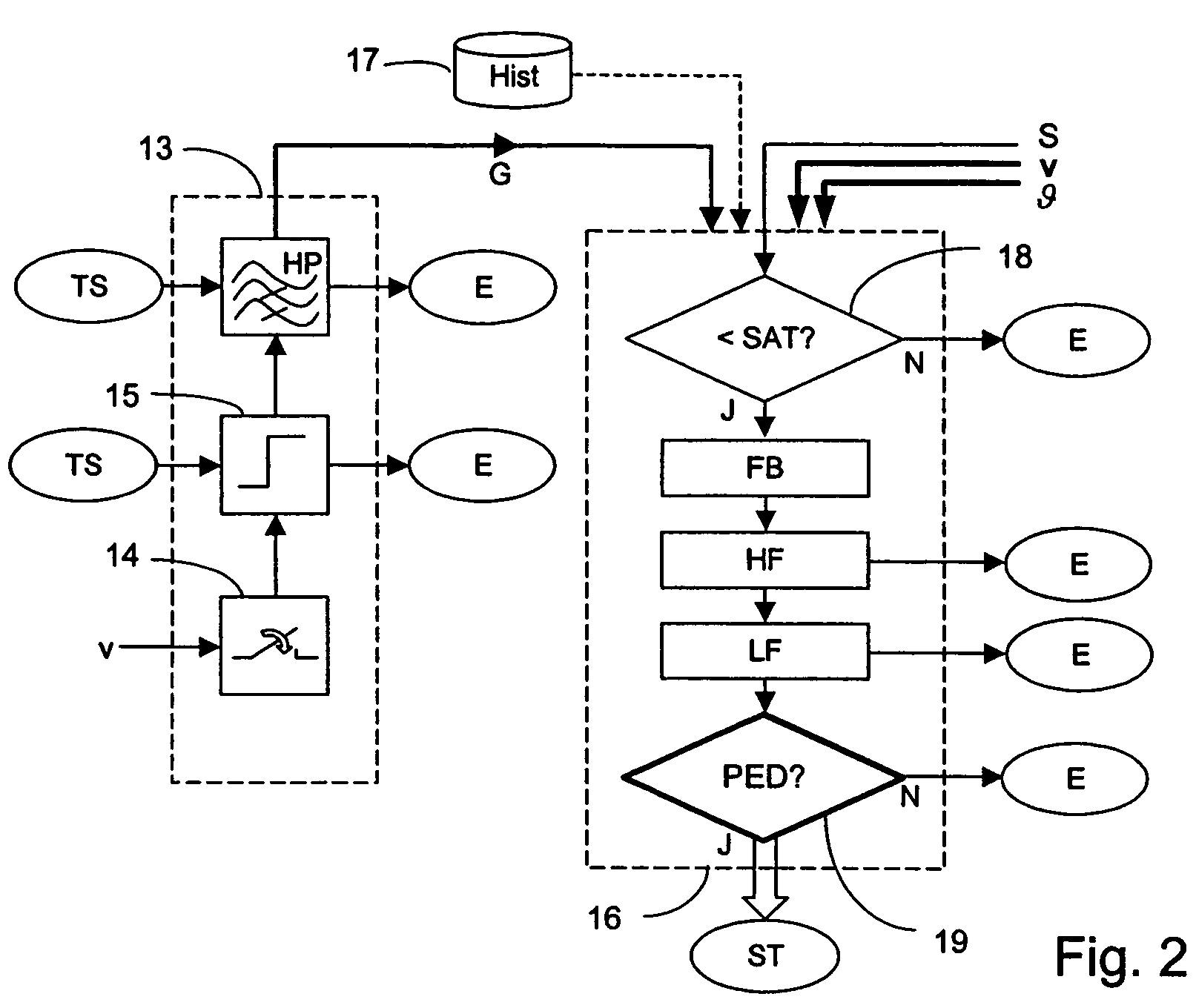Method for controlling a safety system in a vehicle
a safety system and vehicle technology, applied in the direction of pedestrian/occupant safety arrangement, tractors, instruments, etc., can solve the problems of insufficient speed or course of well-known methods, high insufficient protection for occupants, and significant limitation of maximum attainable protection effect, etc., to achieve rapid and reliable recognition of accidents, reduce the risk of accidents, and reduce the effect of accidents
- Summary
- Abstract
- Description
- Claims
- Application Information
AI Technical Summary
Benefits of technology
Problems solved by technology
Method used
Image
Examples
Embodiment Construction
[0022]FIG. 1 shows a diagram of a motor vehicle 1 which is equipped with sensors 2 (not shown here in detail) of a safety system according to the present invention in a bumper or fender 3. In accidents involving a pedestrian or bicyclist, fender 3 is usually the point at which the initial impact takes place. In a side impact, this initial contact can also take place at a left or right fender 4 or a driver's or passenger's door 5. Further areas of use 6 for sensors 2 of a safety system according to the present invention have been indicated by curved brackets in the top view for half of motor vehicle 1.
[0023]FIG. 2 shows a flow chart of an embodiment into which the method of the present invention can be integrated. An initial block 13 represents the processing of a triggering signal TS which comes from the sensor 2 that first becomes sufficiently deformed due to an impact. This is also called the trigger sensor signal. The prerequisite for processing triggering signal TS is, however, ...
PUM
 Login to View More
Login to View More Abstract
Description
Claims
Application Information
 Login to View More
Login to View More - R&D
- Intellectual Property
- Life Sciences
- Materials
- Tech Scout
- Unparalleled Data Quality
- Higher Quality Content
- 60% Fewer Hallucinations
Browse by: Latest US Patents, China's latest patents, Technical Efficacy Thesaurus, Application Domain, Technology Topic, Popular Technical Reports.
© 2025 PatSnap. All rights reserved.Legal|Privacy policy|Modern Slavery Act Transparency Statement|Sitemap|About US| Contact US: help@patsnap.com



